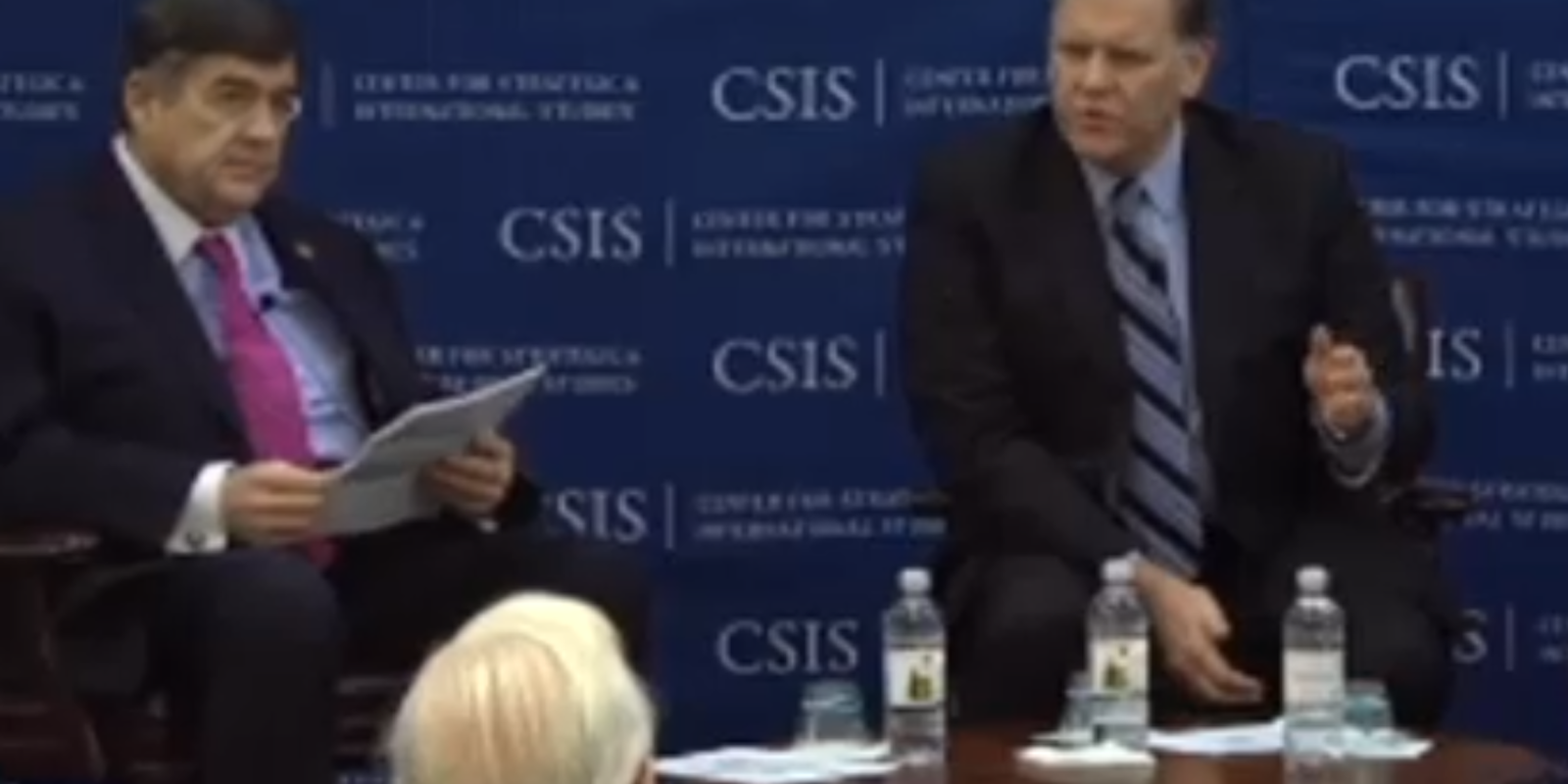It boils down to one question: Do you trust members of Congress, or privacy advocates?
Two House Representatives, Mike Rogers (R-Mich.) and Dutch Ruppersberger (D-Md.), formally reintroduced the controversial Cyber Intelligence Security Protection Act (CISPA), at a cybersecurity talk Wednesday.
In touting their bill, which passed the House in the exact same from in 2012 but was never considered by the Senate, the congressmen stressed that those who criticize CISPA for privacy reasons are mistaken. CISPA, which would make it much easier for private networks to share their data with the government in times of attack, wouldn’t violate users’ privacy, they said.
But privacy advocates and digital rights activists say that CISPA could allow the government to more easily access users’ personal information. The Electronic Frontier Foundation’s Trevor Timm, for instance, previously told the Daily Dot that CISPA was a “privacy nightmare.”
“Privacy groups have come out and said this is a SOPA [Stop Online Piracy Act],” Ruppersberger said in his speech. “It’s not. Maybe we need to do a better job educating.”
“We listened to the privacy groups,” he added. “In the beginning [of creating CISPA], we brought in all different groups, including business… the ACLU [American Civil Liberties Union].”
The ACLU’s Michelle Richardson, who live-tweeted the announcement, said that her organization did, indeed, consult on CISPA’s early stages—but that their criticisms weren’t heeded. “True,” she tweeted. “But they didn’t fix [privacy issues] and we opposed [CISPA]. Still do.”
The two sides even directly contradicted each other.
“The bill does not authorize the government to monitor your computer, your email, your Facebook, your Twitter,” Ruppersberger said.
Richardson said the opposite: “Still not true. [CISPA’s reach] includes content of emails and Internet records.”
Both the pro- and anti-CISPA sides have substantial numbers behind them. Rogers reiterated his faith that the White House, which had previously vowed to veto CISPA, was turning around on the issue. And the previous CISPA, a Republican-favored bill, passed the House with moderate Democratic support and by a wide margin last year.
But Internet activists are riled up, too. More than 800,000 have signed an anti-CISPA petition, a holdover from last year that’s garnered renewed interest since news of the bill’s return first broke. And activist group Fight For the Future has a new campaign, cispaisback.com. According to spokesperson Tiff Cheng, the site registered 30,000 people to call their representatives in Congress in its first four days.
Screengrab via CSIS.org
